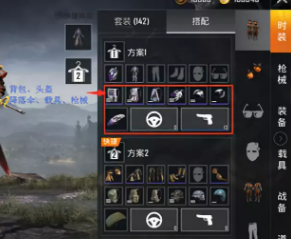mining for digital currency- Top snippets
Since the beginning of this year, six small and medium-sized banks have "refused to redeem" tier-2 capital bonds. On December 9, Yingkou Bank Co., Ltd. announced that when the 10-year tier-2 capital bonds issued by the bank in 2019 had expired, the bank chose not to redeem the bonds. In fact, a number of commercial banks have announced this year that they will not exercise the right to redeem secondary capital bonds, mainly small and medium-sized banks. The insiders believe that there are two main reasons why banks choose not to redeem secondary capital bonds. First, it is difficult for banks to refinance and issue capital replenishment tools due to factors such as high cost of new bonds and declining profitability. Second, the bank's capital adequacy ratio has been at a low level, and some banks' capital adequacy ratio has been lower than the regulatory requirements before redemption, and the capital level may further decline after exercising the redemption right. (Securities Daily)General Motors said that it will give priority to the development of advanced driver assistance systems to realize fully automatic personal cars and make persistent efforts on the basis of super cruise.Goldman Sachs: "According to our basic forecast, the tanker freight will drop slightly in the next few years, but if the diversion of tankers in the Red Sea and Russia ends, the tanker freight will further drop by 30%."
South Korea's unemployment rate in November was 2.7%, expected to be 2.7%, and the previous value was 2.70%.White House: We hope that Austin Otis, an American kidnapped in Syria, is still alive. We are talking with the Turkish side and other parties to get more information.Since the beginning of this year, six small and medium-sized banks have "refused to redeem" tier-2 capital bonds. On December 9, Yingkou Bank Co., Ltd. announced that when the 10-year tier-2 capital bonds issued by the bank in 2019 had expired, the bank chose not to redeem the bonds. In fact, a number of commercial banks have announced this year that they will not exercise the right to redeem secondary capital bonds, mainly small and medium-sized banks. The insiders believe that there are two main reasons why banks choose not to redeem secondary capital bonds. First, it is difficult for banks to refinance and issue capital replenishment tools due to factors such as high cost of new bonds and declining profitability. Second, the bank's capital adequacy ratio has been at a low level, and some banks' capital adequacy ratio has been lower than the regulatory requirements before redemption, and the capital level may further decline after exercising the redemption right. (Securities Daily)
General Motors said that it will give priority to the development of advanced driver assistance systems to realize fully automatic personal cars and make persistent efforts on the basis of super cruise.The listing in Hong Kong heats up. Many listed companies have started the "A+H" mode, and the policy warm wind is blowing frequently. More and more A-share companies are planning to issue H shares and start the "A+H" dual-capital operation platform mode. According to incomplete statistics, at least seven A-share companies have disclosed plans to issue H-shares this year. Since December alone, Hengrui Pharma, Junsheng Electronics and other listed companies have announced plans to go public in Hong Kong. Previously, Midea Group, SF Holdings and other leading A-share companies have successfully listed on the Hong Kong Stock Exchange. Zhang Shujian, head and managing director of the capital market department of Futeng Capital, believes that the "A+H" model increases the flexibility of listing financing by building a platform for listing in two places, and at the same time introduces international long-term investors, which is conducive to optimizing the shareholder structure. In addition, since the beginning of this year, the China Securities Regulatory Commission and the Exchange have issued relevant policies to support A-share companies to go public in Hong Kong, which has driven this round of "A+H" craze. (SSE)The listing in Hong Kong heats up. Many listed companies have started the "A+H" mode, and the policy warm wind is blowing frequently. More and more A-share companies are planning to issue H shares and start the "A+H" dual-capital operation platform mode. According to incomplete statistics, at least seven A-share companies have disclosed plans to issue H-shares this year. Since December alone, Hengrui Pharma, Junsheng Electronics and other listed companies have announced plans to go public in Hong Kong. Previously, Midea Group, SF Holdings and other leading A-share companies have successfully listed on the Hong Kong Stock Exchange. Zhang Shujian, head and managing director of the capital market department of Futeng Capital, believes that the "A+H" model increases the flexibility of listing financing by building a platform for listing in two places, and at the same time introduces international long-term investors, which is conducive to optimizing the shareholder structure. In addition, since the beginning of this year, the China Securities Regulatory Commission and the Exchange have issued relevant policies to support A-share companies to go public in Hong Kong, which has driven this round of "A+H" craze. (SSE)
Strategy guide 12-14
Strategy guide
12-14
Strategy guide
12-14
Strategy guide
12-14
Strategy guide
12-14
Strategy guide
Strategy guide































